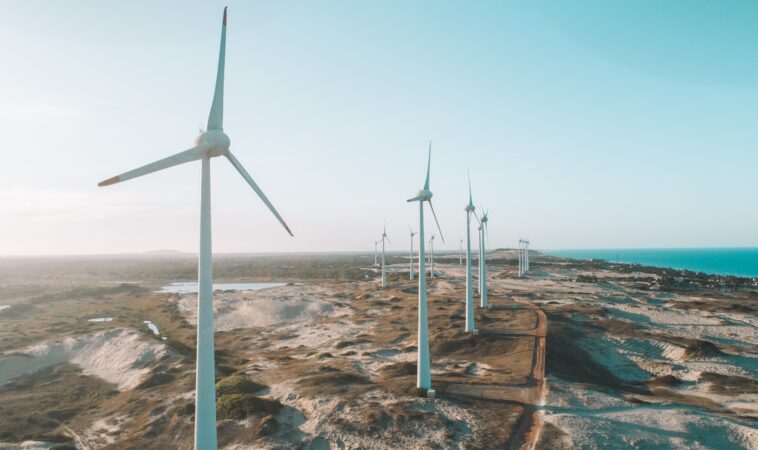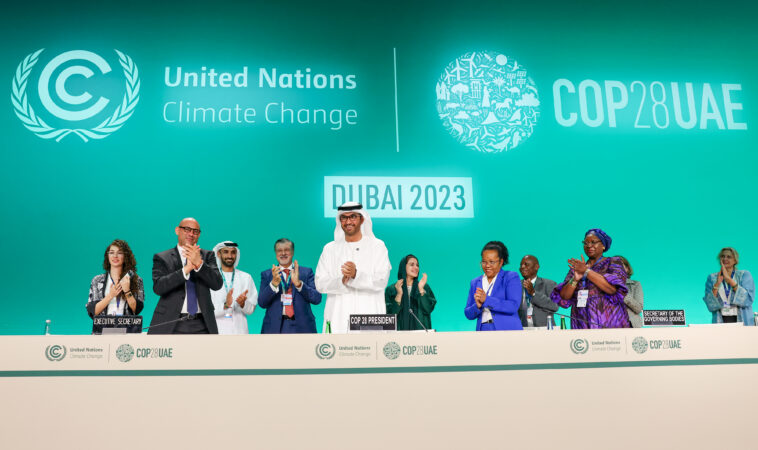

The early retirement and managed phase-out of existing coal power assets will be an essential element of the global energy transition. A high-level roundtable hosted by Powering Past Coal Alliance (PPCA), Bloomberg Philanthropies and the Glasgow Financial Alliance for Net Zero (GFANZ) during New York Climate Week showed the momentum on the topic of managed coal phase-out and the need for further public-private sector collaboration ahead of COP28. Advancing the transition on the speed and scale needed to keep temperature rise to 1.5oC will require not only putting a stop to the construction of new coal power plants but also closing existing assets.
Benefits and challenges of managed coal phase-out
Accelerating coal phase-out is a matter of utmost urgency for tackling the climate crisis and delivering the Paris Agreement goals. The IEA has just updated its roadmap for achieving Net Zero by 2050 confirming that to keep the 1.5°C goal within reach will require an immediate end of construction of new coal power plants, a stop in emissions from coal power in the OECD by 2030, and globally by 2040. Global Energy Monitor estimate this means that the world must close over 100 GW of coal capacity per year, four and a half times more than the current retirement rate. If the existing 9,000 coal fired-power plants globally continue to operate as planned, they alone will generate enough emissions to exhaust two-thirds of the remaining global carbon budget associated with limiting warming to 1.5°C .
While the phase-out of coal power is well underway in many countries, despite their dependence on coal for electricity, jobs and economic development, the challenge of phasing out coal is most acute in developing countries. In the face of increasing electricity demand and with millions of people still lacking access to electricity, phasing out coal raises concerns over the ability to secure reliable and affordable access to electricity. Coal power plants in emerging and developing economies are relatively young, less than 15 years old compared to an ‘end of life’ of 40 years on average in developed countries. This is a result of the recent much faster growth in energy demand they have seen. These plants are also often insulated from market forces through contractual arrangements. Retiring them earlier than their expected lifetime could lead to a significant loss of capital. The owners of these assets have limited ability or incentive to shorten their life span and these assets will be producing emissions for many years to come.
At the same time, the initial costs of early retirement enable the longer-term benefits. The swift phase-out of coal power represents an enormous economic opportunity. The decreasing costs of solar and wind generation, along with the development of storage technologies, means that replacing the entire fleet of global coal plants with clean energy would result in $105 billion net annual savings in 2025. By the end of this century, it would also bring $78 trillion in benefits from avoiding damage from climate change and harm to people’s health.
Concerted efforts are needed to advance the right policy and financial mechanisms to incentivise managed phase-out and early retirement of coal power plants, while ensuring that the rights of coal-dependent communities and workers are protected. To bring together key decision makers to share experiences and challenges in financing early retirements of coal plants, the PPCA, Bloomberg Philanthropies and GFANZ co-hosted a roundtable on this during New York Climate Week.
Financing managed phase-out
Governments have a key role to play in creating favourable policy and financing frameworks to advance managed phase-out and related transactions. This was emphasised at the event by several participants. Government support would entail setting clear targets and pathways towards decarbonisation that are underpinned by ambitious policies (such as coal phase-out dates and policies, and joining the PPCA), regularly reporting on their implementation, introducing carbon pricing, setting emissions standards, modernising grids and removing coal subsidies.
During the event, the critical role of public finance and philanthropy support was also recognised. Grants and low-cost capital play a vital role in supporting communities in transition and can make it more attractive for private finance to provide utilities with the resources they need to retire and repurpose coal power plants and build out cleaner replacements. However, given the limited resources available to governments and development finance institutions, the use of public funds needs to be focused on coal fired power plants that are unlikely to be retired on their own or thanks to supportive government and regulatory policies.
It was also clear in the discussion that public resources alone will not suffice to advance coal retirement. Private finance is expected to make up around 60% of the finance for the energy transition in developing countries. Many private finance institutions already recognise that actively supporting the managed phase-out of coal can help them deliver on their net zero commitments. However, many are still wary to engage on such efforts, pointing to a potential increase in emissions on their balance sheets if they purchase plants to close them early. This is despite the fact that closing the plant earlier will ultimately result in a reduction in emissions.
Participants stressed that it is important to acknowledge the existing stigma of investing in managed phase-out, and try to address this by building recognition of these efforts as an important part of decarbonisation strategies to advance the energy transition, while establishing the necessary guardrails. Private finance institutions need further confidence to step up their ambition and support towards managed coal phase-out. This includes objective assessments of the criteria that make investments in coal power plants and the companies that own them a useful contribution to accelerating the transition away from coal power.
One thing was clear at the event: public and private stakeholders will need to cooperate to achieve a coal to clean transition in a just and fair way.
The way forward
There are already existing efforts, mainly in the APAC region, that put managed phase-out as a key component in energy transition efforts. Climate Investment Fund’s Accelerating Coal Transition investment programme, the Asian Development Bank’s Energy Transition Mechanism, as well as country-led platforms such as the Just Energy Transition Partnerships, or JETPs, in Indonesia, Senegal, South Africa, and Vietnam have spearheaded these efforts. To support financial institutions in engaging in this work, GFANZ is developing voluntary guidance which will be published shortly before the UN Climate Summit COP28.
These initiatives provide an impetus for broader action and valuable insights that can be adapted to different contexts. Further political will and international cooperation between public and private sectors will be key to strengthening these mechanisms and significantly increasing their resources, both from public and private capital, so that they deliver managed phase-out at scale.
COP28 this year is a key opportunity to elevate the need for managed coal phase-out in the policy agenda with its recognition as a key component of the global clean energy transitions. Setting the right policy frameworks for financing the managed coal phase-out at the international level is crucial in improving the enabling conditions for implementation.
The PPCA is uniquely positioned to foster stronger collaboration on managed coal phase-out, as the leading public-private global platform working to accelerate the transition away from coal power generation in a sustainable and inclusive way. To this end, the Alliance will continue to encourage its members among government and financial institution to share hard-won experience, work through common challenges, and collaborate to generate effective solutions, while helping others to follow.
The PPCA is organizing a session on Financing a Just Transition Beyond Coal at the inaugural International Forum for Coal Regions in Transition, co-hosted by Germany’s IKI Just Energy Transition in Coal Regions and Grantham Research Institute where experts will gather to discuss the topic. More information here.




